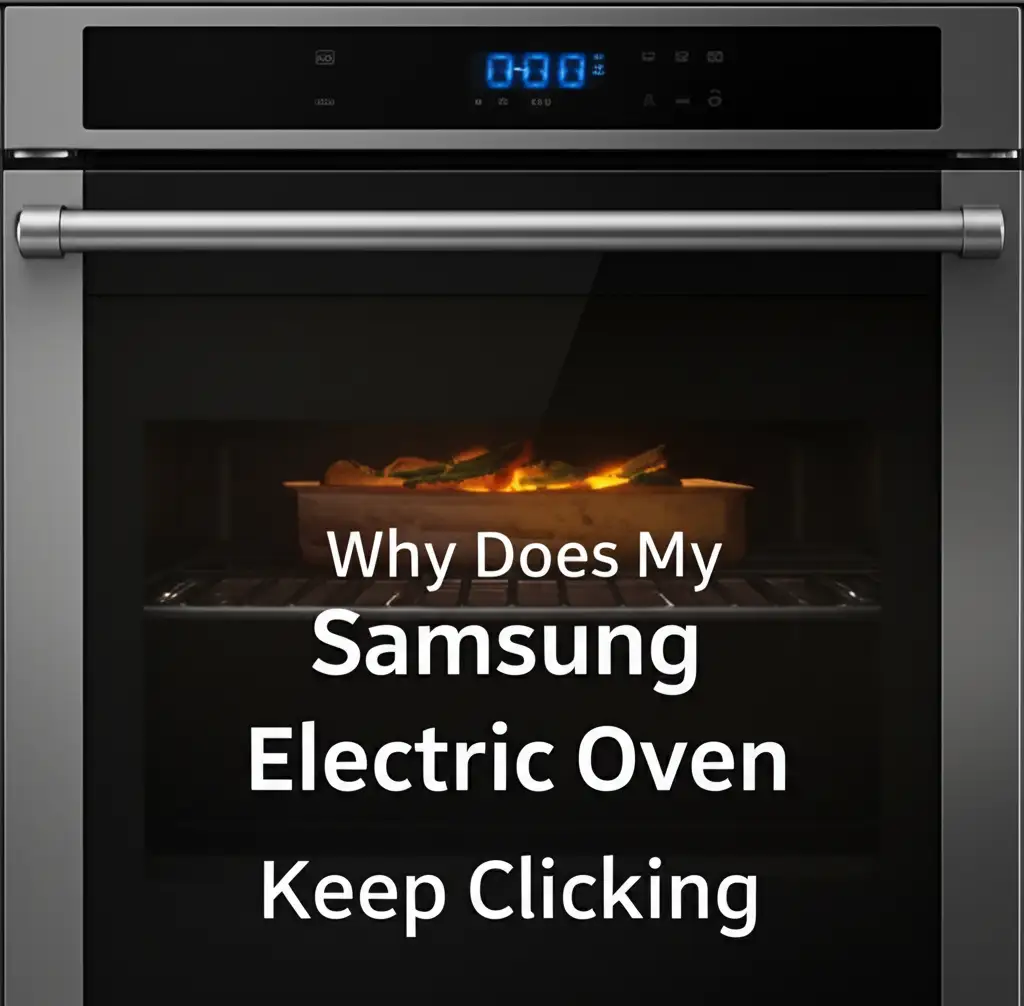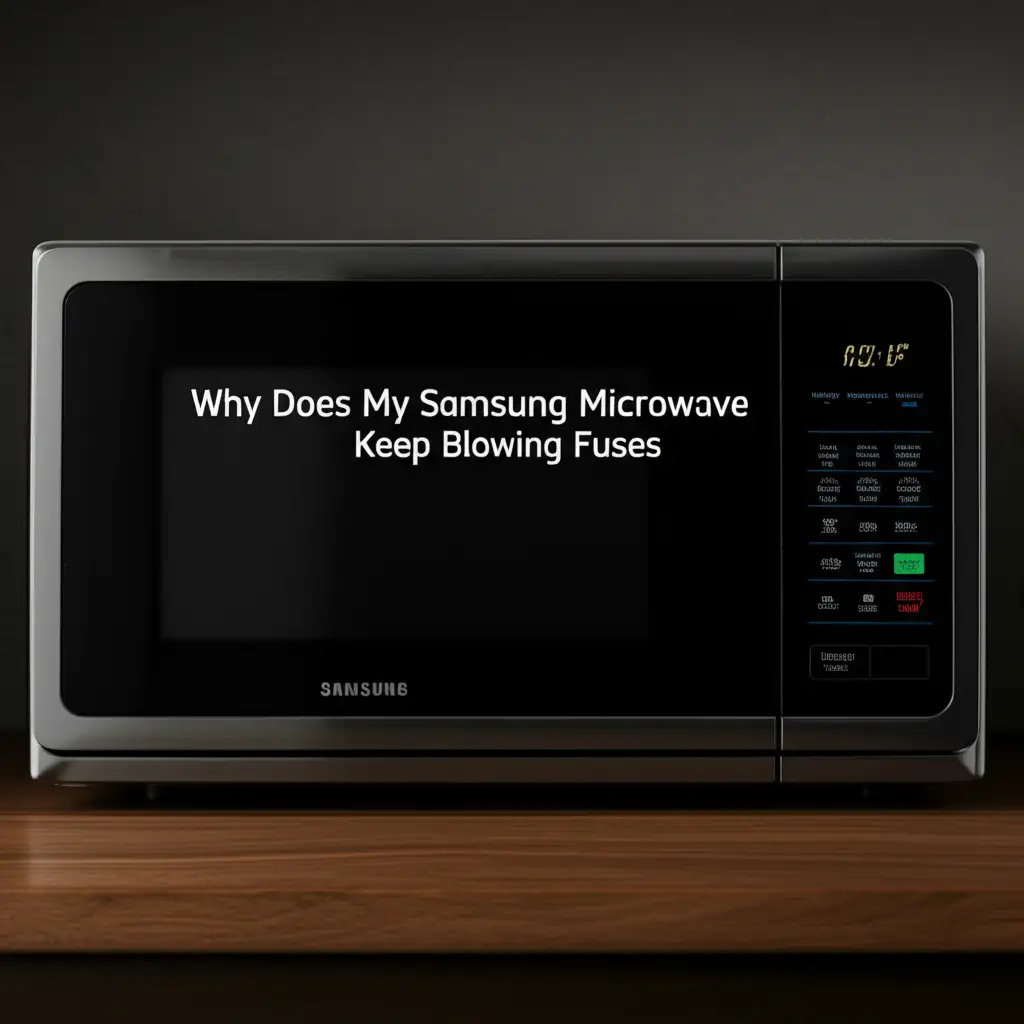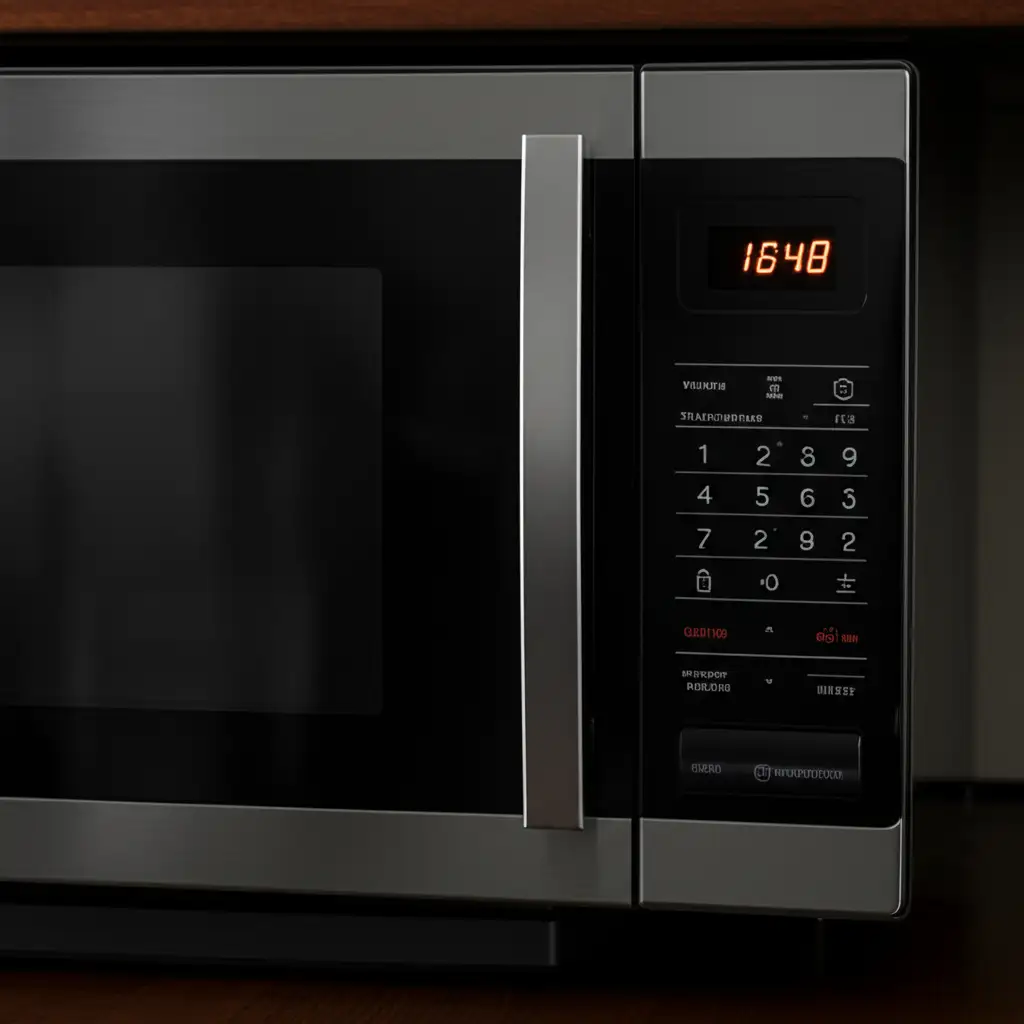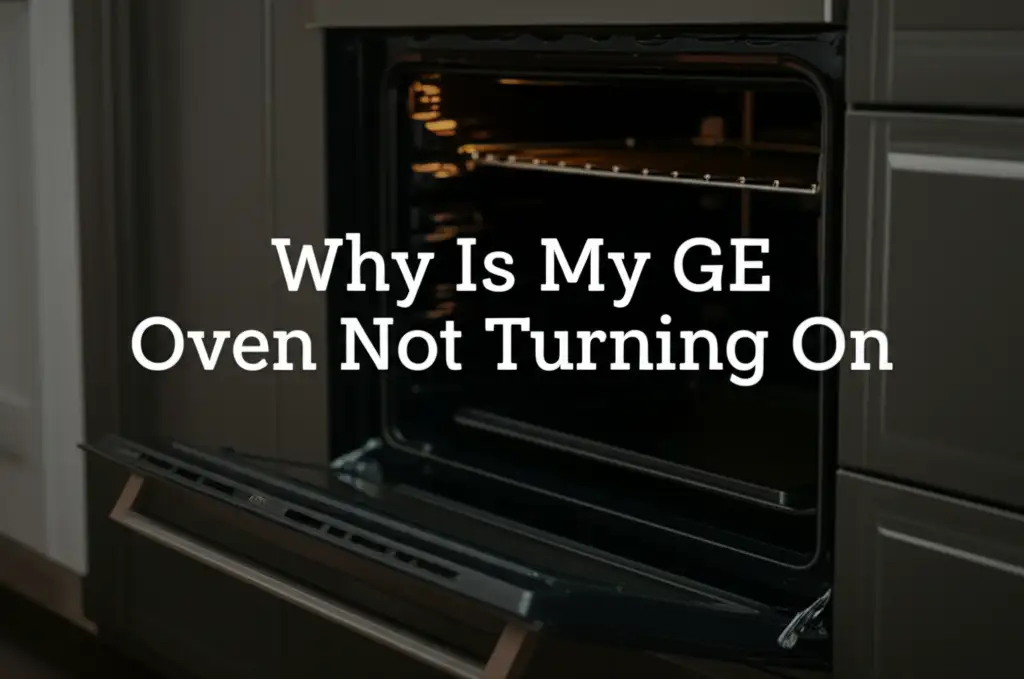· Todd Martin · Appliance Repair Guides · 16 min read
Why Does My Samsung Electric Oven Keep Clicking

Fixing Your Samsung Electric Oven’s Clicking Sound
Have you ever noticed a persistent clicking sound coming from your Samsung electric oven? It can be quite unsettling, especially when you are preparing a meal or just enjoying a quiet evening at home. This clicking noise might be a normal part of your oven’s operation, or it could signal a problem that needs your attention. Understanding why your Samsung electric oven keeps clicking helps you diagnose the issue and decide on the best course of action.
This article explores the various reasons behind the clicking sound in your Samsung electric oven. We will discuss both normal operational noises and indicators of potential faults. You will learn about common culprits such as faulty thermostats, malfunctioning relays, and issues with heating elements or electrical connections. We also cover how the self-cleaning cycle can produce unique sounds. My goal is to provide clear steps for troubleshooting and explain when you might need professional help.
Takeaway
- Identify Normal Clicking: Recognize the sounds of thermostats and relays during heating cycles.
- Check Thermostat Function: A constantly clicking thermostat may be faulty.
- Inspect Relays on Control Board: Malfunctioning relays are common sources of electrical clicks.
- Examine Heating Elements: Loose or damaged elements can cause arcing and noise.
- Verify Electrical Connections: Ensure all wiring is secure to prevent arcing.
- Understand Self-Clean Noises: High heat cycles create unique expansion and contraction sounds.
- Call for Professional Help: For complex electrical issues or if you feel unsure about repairs.
Your Samsung electric oven keeps clicking because its thermostat or relays engage and disengage to maintain temperature. If the clicking is excessive, loud, or continuous, it may indicate a faulty thermostat, worn-out relays, loose heating elements, or an issue with the main control board. These issues often require inspection and component replacement.
Normal Sounds from Your Samsung Electric Oven
It’s natural for electric ovens, including your Samsung model, to make some noises during operation. A clicking sound can often be a completely normal part of how your oven works. These sounds typically occur as the oven cycles on and off to maintain a set temperature. Understanding these normal noises can help you distinguish them from sounds that signal a problem.
The primary components responsible for normal clicking sounds are the thermostat and the relays. The thermostat is the brain of the oven’s temperature control. It senses the internal temperature and sends signals to the heating elements. When the temperature drops below the set point, the thermostat tells the elements to turn on. When the temperature reaches the set point, it tells them to turn off. This process involves relays, which are essentially electrical switches. These switches open and close, making a distinct clicking sound as they engage or disengage the power to the heating elements.
You will most often hear these normal clicks during the preheating phase. The oven works hard to reach the desired temperature quickly. This means the heating elements will turn on and off more frequently. Once the oven stabilizes its temperature, the clicking sounds should become less frequent. They will occur intermittently as the oven makes small adjustments to maintain warmth throughout cooking. If the clicking is rhythmic and stops or significantly reduces after the preheat phase, it is usually nothing to worry about.
Troubleshooting a Faulty Thermostat in Your Samsung Oven
Sometimes, the clicking sound from your Samsung electric oven is not normal. It can indicate a problem with the thermostat itself. A faulty thermostat might click excessively, continuously, or even when the oven is off. This happens because the thermostat struggles to accurately read the oven’s temperature. It might rapidly try to cycle the heating elements on and off, causing the relays to click more often than they should. This constant cycling can prevent your oven from reaching or maintaining the correct temperature, leading to undercooked food or prolonged cooking times.
You can identify signs of a failing thermostat. If your oven clicks constantly but does not heat up properly, the thermostat might be at fault. Similarly, if the oven temperature wildly fluctuates or if the oven takes an unusually long time to preheat, suspect the thermostat. A broken thermostat can also lead to the oven turning off unexpectedly, or even why does my Samsung oven keep turning off. These symptoms point to the thermostat’s inability to send consistent signals to the heating system.
Testing a thermostat is a task that often requires a multimeter. You would check for continuity and resistance values as the temperature changes. This helps determine if the thermostat is accurately sensing and responding to temperature variations. If the thermostat readings are erratic or consistently out of range, it likely needs replacement. Replacing a thermostat involves disconnecting power to the oven, locating the component, and carefully installing the new part. While some DIY enthusiasts might attempt this, it often requires specialized knowledge and tools. Considering the electrical nature of ovens, safety is paramount. If you are not comfortable with electrical work, it is always best to consult a professional appliance technician for thermostat testing and replacement.
Investigating Malfunctioning Relays in Your Samsung Electric Oven
Relays are essential electrical switches on your oven’s control board. They control the flow of power to different components, including the heating elements. When your Samsung electric oven keeps clicking, especially if the clicking is loud, erratic, or constant, it often points to issues with these relays. Each time the oven turns a heating element on or off, a relay switches, producing a click. If a relay is faulty, it might not make a clean connection, causing it to rapidly engage and disengage, leading to a persistent or repetitive clicking sound. This issue is a common reason why an electric oven might make noise even when it is off, as discussed in why is my electric oven clicking when off.
Identifying relay board problems requires a bit of detective work. Sometimes, a visual inspection of the control board can reveal burnt spots or damaged relays. These relays appear as small, often rectangular components soldered onto the circuit board. Over time, due to consistent use, heat, and electrical stress, relays can wear out. They might become sticky, preventing them from opening or closing properly. This internal malfunction translates into the audible clicking you hear. A relay that is failing might also cause the oven to only work sometimes or lead to inconsistent heating.
Professional relay board replacement is usually the recommended course of action. Relays are delicate components integrated into the oven’s main control board. Attempting to desolder and replace individual relays without proper tools and expertise can damage the entire board. Moreover, the control board itself is a sensitive and expensive part. A professional technician has the necessary diagnostic equipment to test individual relays and determine if the entire board needs replacement or if specific relays can be repaired. They also ensure safety by properly disconnecting power and handling high-voltage components. Incorrect installation can lead to further damage to the oven or pose electrical hazards. For complex electrical components like relays, relying on expert service ensures the repair is done correctly and safely.
Examining Heating Element Connections and Their Noises
Your Samsung electric oven uses heating elements to generate the heat for cooking. These elements are the long, often coiled metal tubes located at the top (broil) and bottom (bake) of the oven cavity. While heating elements themselves don’t typically “click,” problems with their connections or the elements themselves can produce noises that might sound like clicking or buzzing. One common issue is a loose connection where the element plugs into the oven’s wiring. When power flows through a loose connection, it can cause arcing, which is a small electrical spark. This arcing can create a rapid clicking or buzzing sound.
You should regularly inspect both the bake and broil elements for any signs of damage or looseness. Look closely at where the element connects to the back wall of the oven. Ensure the element is firmly seated in its receptacles. If you notice any visible damage, like cracks, bulges, or discolored spots on the element itself, it could indicate an internal fault. A damaged element might struggle to heat evenly or effectively, leading to the oven taking too long to preheat. These visual cues are important diagnostic indicators.
Correcting element connections usually involves tightening screws or ensuring the element prongs are fully inserted into their terminals. Before you attempt any inspection or repair, always disconnect the oven from its power source by unplugging it or switching off the circuit breaker. Electrical safety is crucial. If the element is visibly damaged, it requires replacement. Replacing an element is a relatively straightforward repair for many homeowners, involving unscrewing the old element and connecting the new one. However, if the arcing appears severe, or if you are unsure about the electrical connections, it’s safer to contact a qualified appliance technician. They can safely diagnose and repair electrical faults, ensuring your oven operates correctly without risk.
Addressing Electrical Wiring and Connection Issues
Beyond the internal components like thermostats and relays, general electrical wiring within your Samsung electric oven can also cause clicking noises. Loose or damaged wiring is a serious concern, as it can lead to arcing. Arcing occurs when electricity jumps across a gap in a circuit, creating sparks and often a distinct clicking or buzzing sound. This can happen at any point where wires connect to components, such as terminal blocks, heating elements, or the control board. Persistent arcing indicates a fire hazard and requires immediate attention.
You should first check the most accessible electrical connections: the power cord and the wall outlet. Ensure the oven’s power cord is fully plugged into a dedicated, properly grounded wall outlet. Examine the cord itself for any signs of damage, such as fraying or burn marks. Also, inspect the wall outlet for any discoloration or loose fit. If the outlet feels warm to the touch or shows burn marks, it could indicate an issue with the outlet or the circuit. This might also lead to issues like your oven turning off by itself.
Inspecting internal wiring involves disconnecting power to the oven and carefully pulling it away from the wall. You will need to access the back panel of the oven to view the wiring connections. Look for any loose wires, corroded terminals, or wires that appear burnt or melted. Pay close attention to the wiring leading to the heating elements, the terminal block where the main power cord connects, and the control board. If you find any damaged wiring, it must be replaced by a qualified electrician or appliance technician. Do not attempt to repair damaged electrical wires with tape. Such repairs are temporary and unsafe. Electrical work inside an oven is complex and carries significant risks. If you are not experienced with appliance repair, it is always recommended to call a professional for electrical wiring issues.
Control Board Problems in Your Samsung Electric Oven
The control board acts as the central nervous system of your Samsung electric oven. It receives commands from the user, interprets signals from sensors like the thermostat, and sends instructions to various components, including the heating elements and relays. When your oven keeps clicking, especially if it is accompanied by other erratic behaviors, the control board might be failing. A faulty control board can misinterpret signals or send incorrect commands, causing relays to click erratically or constantly. This can result in inconsistent heating, error codes appearing on the display, or the oven not responding to commands.
Signs of a failing control board often extend beyond just clicking noises. You might notice that the oven display flickers or shows strange symbols. Buttons on the control panel might not respond consistently, or the oven might turn on or off by itself. Sometimes, the oven might click but simply fail to heat up at all. These symptoms indicate that the “brain” of the oven is not functioning correctly. Damage to the control board can occur due to power surges, age, or internal component failure. Visible signs on the board, such as burnt resistors or swollen capacitors, confirm internal damage.
Replacing a control board is a highly technical repair. The board contains delicate electronic components and complex circuitry. While a new control board often comes as a complete unit, simply swapping it out requires careful handling and precise connection of numerous wires. An incorrect installation can lead to further damage to the oven or create electrical hazards. Given the cost of a new control board and the complexity of the repair, it is strongly recommended to hire a professional appliance technician. They possess the expertise to accurately diagnose a faulty control board and safely install a new one, ensuring your Samsung electric oven functions correctly and safely.
The Self-Cleaning Cycle and Peculiar Noises
The self-cleaning cycle on your Samsung electric oven uses extremely high temperatures to burn away food residue. During this intense process, it’s common to hear various sounds, including clicking, popping, and creaking. These noises are usually normal and result from the expansion and contraction of metal parts due to the extreme heat. As the oven heats up to temperatures far exceeding normal cooking temperatures, the metal components, such as the oven cavity, racks, and heating elements, expand. When they cool down, they contract. This physical movement creates sounds that can sometimes be mistaken for an issue.
During the high-heat phase of the self-cleaning cycle, you might hear regular clicking. This is often the relays cycling the heating elements on and off as the oven attempts to maintain the very high internal temperature. The thermostat and relays work harder during this cycle because of the intense heat. This means you might hear more frequent and louder clicks than during a regular baking cycle. Additionally, the interior walls and racks might pop or creak as they expand and contract, which is a normal response to thermal stress. These are not signs of malfunction but simply the physical properties of materials under extreme heat.
Even after the self-cleaning cycle finishes and the oven cools down, you might still hear some post-cycle cooling sounds. As the oven temperature gradually drops, the metal parts continue to contract. This contraction can produce occasional clicking or popping noises for an hour or more after the cycle ends. It’s similar to the sounds an old house might make as it settles. These sounds should gradually diminish as the oven returns to ambient temperature. If the clicking is excessively loud, metallic grinding, or persistent for many hours after cooling, it could suggest an issue with the cooling fan or other components. However, mild clicking and popping during and after self-clean are typically normal for your Samsung electric oven.
When to Seek Professional Oven Repair
While many minor issues with a clicking Samsung electric oven can be addressed by a knowledgeable homeowner, some problems absolutely require professional attention. Knowing when to call in an expert protects both your appliance and your safety. If you are unsure about any diagnostic step, or if the repair involves complex electrical components, it is always best to defer to a professional. Appliance technicians have specialized tools, training, and experience to handle high-voltage systems and intricate oven parts.
You should seek professional repair immediately if you observe certain alarming symptoms. These include any signs of burning smells, smoke coming from the oven, or visible sparks. These indicate a serious electrical fault or potential fire hazard. Similarly, if the oven is tripping your circuit breaker, it points to a significant electrical short that needs expert diagnosis. Other red flags include the oven not heating at all despite clicking, or if the control panel is completely unresponsive. These often signal a major component failure that is beyond simple DIY fixes.
A professional technician can accurately diagnose the root cause of the clicking noise. They can test components like the thermostat, relays, heating elements, and the control board using specialized equipment. This precision helps avoid unnecessary part replacements. For example, replacing a whole control board when only a single relay is faulty wastes money. Furthermore, appliance repair involves working with electricity, which carries a risk of shock or fire if not handled correctly. Technicians ensure repairs are done safely and according to manufacturer specifications. Investing in professional repair not only solves the immediate problem but also extends the life of your Samsung electric oven and ensures its safe operation for years to come.
FAQ Section
Q: Is it normal for my Samsung oven to click when preheating? A: Yes, some clicking during preheating is normal. The thermostat and relays engage and disengage frequently to bring the oven to the desired temperature. As the oven stabilizes, these clicks should become less frequent. If the clicking is continuous or very loud, it could indicate an issue.
Q: Can a faulty control board cause clicking in my Samsung oven? A: Absolutely. The control board manages all oven functions, including activating heating elements via relays. If the control board is faulty, it can send incorrect signals, causing the relays to click erratically or constantly, even when the oven is not supposed to be heating.
Q: What should I do if my Samsung oven clicks and won’t heat up? A: If your oven clicks but does not heat, first check the heating elements for visible damage. Then, consider a faulty thermostat or a problem with the relays on the control board. For safety, disconnect power and consider calling a qualified appliance technician to diagnose the specific issue.
Q: How much does it cost to fix a clicking Samsung oven? A: Repair costs vary widely based on the component causing the click. A faulty thermostat might be less expensive than replacing an entire control board. Labor rates for technicians also differ. It is best to get a diagnostic estimate from a local appliance repair service.
Q: Can I fix a clicking oven myself? A: It depends on your skill level and the specific cause. Simple issues like loose heating elements might be DIY-friendly if you are comfortable with basic electrical work and safety precautions. However, complex electrical problems, faulty control boards, or relay issues often require professional expertise due to safety risks and component costs.
Conclusion
A clicking sound from your Samsung electric oven can range from a normal operational noise to a clear sign of a problem. We have explored the common reasons why your Samsung electric oven keeps clicking, from the essential work of the thermostat and relays to issues with heating elements and electrical connections. Understanding these causes helps you distinguish between harmless sounds and those needing attention.
Always prioritize safety when troubleshooting your oven. Disconnect power before inspecting any internal components. If the clicking is constant, loud, or accompanied by other issues like poor heating or unusual smells, it is time for a closer look. While some minor fixes are possible for the confident DIYer, do not hesitate to contact a professional appliance technician for complex electrical issues. A professional diagnosis ensures your oven is repaired correctly, safely, and efficiently, restoring peace to your kitchen and helping you enjoy your Samsung electric oven for many more years.
- Samsung oven repair
- electric oven noise
- oven troubleshooting
- appliance clicking





